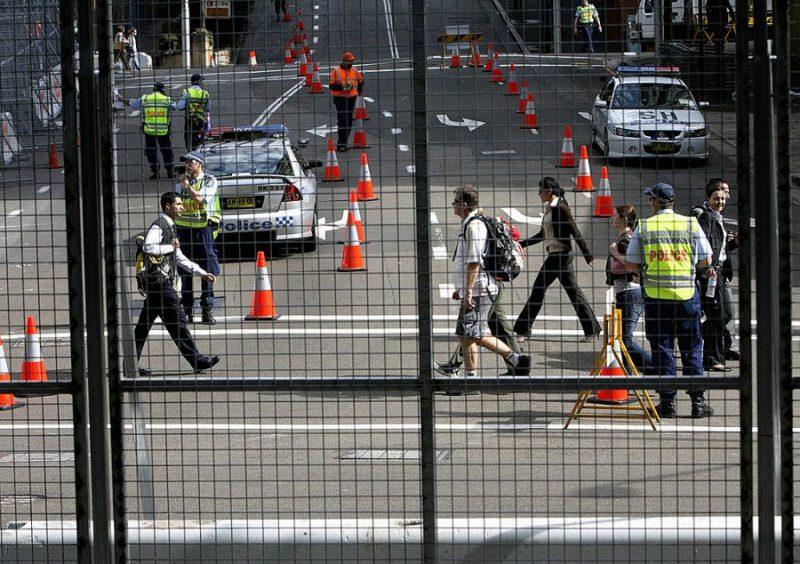Agenda for change: counterterrorism
Posted By Gill Savage on February 11, 2022 @ 11:30

On 2 February, ASPI released Agenda for change 2022: shaping a different future for our nation [1] to promote public debate and understanding on issues of strategic importance to Australia. The key message in Agenda for change 2022 is that we need to embrace uncertainty, engage with complexity and break down the silos. Our economic prosperity, national resilience and security depend upon it.
In the lead-up to every federal election, ASPI looks at the big challenges facing Australia and what’s needed to address them. In her chapter in Agenda for change 2022, ‘Counterterrorism as an anti-hero’s journey—defending democracy needs a more “frictious” script’, counterterrorism expert Katja Theodorakis advocates for a more problem-driven, iterative approach to countering terrorism that takes into account democratic friction as a core element.
The premise of this chapter is that a ‘strategic response to countering terrorism and extremism needs to reflect engagement with contestations of its core principles rather than prescriptive references to democracy’s merits’.
Theodorakis explores the tensions underpinning liberalism, including the inability to reconcile conflicts between values and interest, highlighting that ‘negotiating the frictions about what constitute the boundaries of the acceptable is an unavoidable part of democratic practice’.
Under the heading ‘Strengthening our resilience’, Theodorakis notes that Australia’s counterterrorism strategy advocates a preventive approach, with a declared whole-of-society focus to preventing and countering violent extremism. Yet, when restricted to ‘at-risk’ individuals from selected subsections of society, the effects of such an approach are divisive.
The response that developed after 11 September 2001 is a ‘heroes versus villains’ script that will not serve us well in the future, says Theodorakis. She notes that ‘not all heroes and villains wear distinguishable capes’ and that it is democracy, not just security, that’s under threat—from an illustrious cast of villains.
To move forward, Theodorakis suggests viewing counterterrorism more as an anti-hero’s journey featuring ‘a well-intentioned but imperfect, flawed lead character’. The big idea here is recognition of the inherent dilemmas and complexities of countering terrorism and extremism in a democratic society—which requires making a clearer distinction between security and societal outcomes. This means an adaptive response that reflects a broadening of previously recognised dynamics of ideological extremism to include the coalescing of old and new dynamics, manifested in the form of anti-democracy discourse and anti-government activism.
The riots at the US Capitol on 6 January 2021 are provided as one example of why building resilience should focus on the wider socio-political and cultural environment and not just zero in on so-called at-risk communities.
Despite Australia having passed close to 100 counterterrorism laws, including the Foreign Fighters Act, and enacted temporary exclusion orders, control and preventative detention orders and mandatory metadata retention, it remains to be seen to what extent the recognition of a more multifaceted threat translates into consistent political action across the spectrum. The author points out that those tools have been or could be used to prevent far-right terrorism (there were two disrupted plots in 2016 and 2020 and one cancelled passport).
Careful analysis and assessment are always warranted to avoid viewing a diverse spectrum as one monolithic threat, Theodorakis says. An example provided is that Australians fighting for far-right militias in the Ukrainian conflict—described by the Soufan Center as an ‘emerging epicenter’ for white supremacist extremists—have not been charged under the Foreign Fighters Act or been subject to temporary exclusion orders. Here, ultimately the powers lie with the home affairs minister.
Theodorakis warns:
We can’t fall back on the conceptual comfort of a ‘single enemy’ whose extremism is rooted in a clear difference from our way of life. As problematic and divisive as some of the post-9/11 era’s political logic was, the problem sets thrown up or accelerated by the Covid-19 pandemic defy reductionist categorisations even more. Challenges today are more systemic, amorphous and endemic—a much more uncomfortable, politically difficult reality.’
She also says we need to decouple our security-focused counterterrorism response from our approach to countering extremism.
Proposed is a separate ‘counter-extremism strategy based on broader civic education and awareness of what constitutes anti-democratic discourse that violates basic egalitarian principles and human rights; mechanisms of dehumanisation; and clear definitions of what constitutes hate speech and hate crimes.’
A key message in this chapter is the need to recognise the inherent dilemmas in countering terrorism and extremism, reimagine the problem set and broaden our strategy to go beyond the goal of security and keeping citizens safe.
Article printed from The Strategist: https://aspistrategist.ru
URL to article: /agenda-for-change-counterterrorism/
URLs in this post:
[1] Agenda for change 2022: shaping a different future for our nation: https://www.aspistrategist.ru/report/agenda-change-2022-shaping-different-future-our-nation
Click here to print.